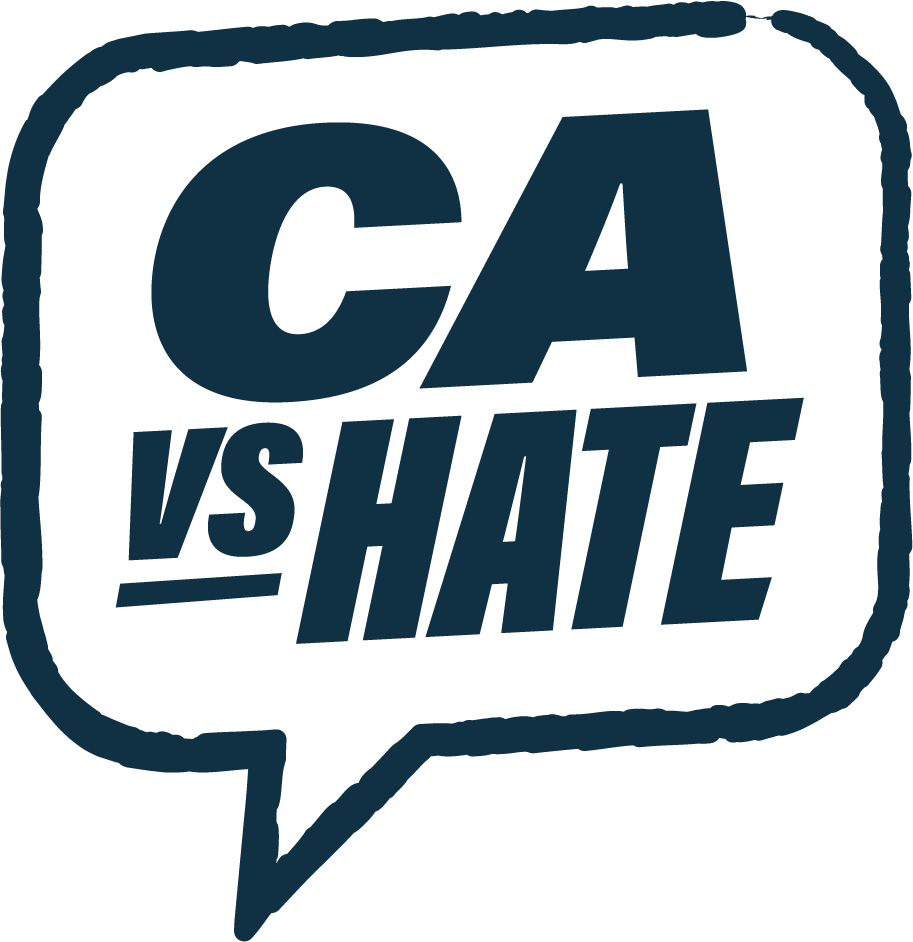In partnership with Aetna and CVS Health, the CalAsian Foundation hosted a webinar, Brain & Body: The Dual Path to Well Being, that helped attendees discover how physical and mental health are intertwined and gain actionable insights on building resilience and balance.
Speaker: Dr. David Chand, Senior Medical Director, CVS Health
CalAsian’s mental health webinar, Addressing Burnout & Prioritizing Wellness in The Workplace, focused on how to identify signs of burnout, establish work-life balance, and set boundaries at work.
Speaker: Helen Garcia, Host of the Yellow Chair Collective Podcast
With guest speakers from the Yellow Chair Collective, CalAsian hosted 3 virtual workshops, Understanding Trauma within AAPI Communities, that focused on healing through trauma in our lives and our communities.
Part 1: Understanding Trauma & Healing Work – Pathways to Introspection for AAPI Communities
Speaker: Helen Garcia, Host of the Yellow Chair Collective Podcast
With guest speakers from the Yellow Chair Collective, CalAsian hosted 3 virtual workshops, Understanding Trauma within AAPI Communities, that focused on healing through trauma in our lives and our communities.
Part 2: Making Visible the Invisible — Racial Trauma in the AAPI Community
Speaker: Megan Soun, Community Program Manager at Yellow Chair Collective
With guest speakers from the Yellow Chair Collective, CalAsian hosted 3 virtual workshops, Understanding Trauma within AAPI Communities, that focused on healing through trauma in our lives and our communities.
Part 3: Breaking Cycles — Intergenerational Trauma
Speaker: Esther Yerin Lee, Associate Clinical Social Worker at Yellow Chair Collective
AAPI Wellness: A Plan for Mental Wellness, is a 3-part series facilitated by Stephanie Ramos, Education Director at Cal Voices.
Part 1: Functional Principals of Recovery
This session introduces key concepts to facilitate understanding of recovery and how they can support you in achieving and maintaining personal wellness.
AAPI Wellness: A Plan for Mental Wellness, is a 3-part series facilitated by Stephanie Ramos, Education Director at Cal Voices.
Part 2: Understanding Trauma
This session provides an overview of trauma, its impacts, and how you may experience trauma. Participants have the opportunity to share experiences and see what trauma looks like in the AAPI community.
AAPI Wellness: A Plan for Mental Wellness, is a 3-part series facilitated by Stephanie Ramos, Education Director at Cal Voices.
Part 3: Wellness Recovery Action Plan
This session allows participants to learn about the Wellness and Recovery Action Plan (WRAP) and develop a personalized plan to achieve their own wellness goals.
The Attorney General of the CA Department of Justice defines hate crimes and incidents in the following ways:
A hate crime is a crime against a person, group, or property motivated by the victim’s real or perceived protected social group. You may be the victim of a hate crime if you have been targeted because of your actual or perceived: (1) disability, (2) gender, (3) nationality, (4) race or ethnicity, (5) religion, (6) sexual orientation, and (7) association with a person or group with one or more of these actual or perceived characteristics. Hate crimes are serious crimes that may result in imprisonment or jail time.
A hate incident is an action or behavior motivated by hate but which, for one or more reasons, is not a crime. Examples of hate incidents include:
Signs that a crime was motivated by hate may include:
Stop AAPI Hate operates the nation’s largest reporting center tracking acts of hate against AAPI communities. With the support of respondents acriss the U.S., they have documented thousands of cases of anti-Aisan Hate and anti-Pacific Islander hate.

The California Civil Rights Department received funding and authorization from the State Legislature to establish the non-emergency, CA vs. Hate Resource Line and Network to support individuals and communities targeted for hate.
The goals of CA vs. Hate are to help individuals and communities targeted for hate; identify options for next steps after a hate incident; connect people targeted for hate with culturally competent resources; and to improve hate incident and crime reporting data to enhance hate crimes prevention and response.
You can report anonymously. Whether or not you report anonymously, your identity will not be disclosed. The only exception to non-disclosure is if a report is made of child abuse, elder abuse, or activities indicating an imminent risk of violence, or if required by law.
CA vs. Hate will use the information captured through the portal and network to improve services for people targeted for hate. CRD will also issue regular reports, sharing data about hate incidents and crimes across the state that will not identify individuals targeted for hate or people who report acts of hate. This data will help CRD, other government, and community leaders improve efforts to prevent and respond to hate.
The CA vs. Hate Resource Line is a non-emergency phone number and online portal to connect individuals to resources if they are targeted for hate. To be connected to a care coordinator at the Resource Line call 1-833-8NO-HATE Monday through Friday, 8:00 am – 5:00 pm PST. If you call outside those times, you can leave a message with a request for a return call.

The Attorney General publishes the Hate Crime in California Report annually assessing the number of hate crime events, hate crime offenses, hate crime victims, and hate crime suspects.
This report highlights hate crime trends, including the most common types of hate crimes broken down by protected class, as well as by city and county. The report puts these statistics in historical perspective by providing trend information on the number and types of hate crimes over the past ten years.
More information, including an analysis of the number and types of hate crimes over the past decade, can be found on the Attorney General’s OpenJustice website.
Stop AAPI Hate released a report, Two Years and Thousands of Voices, which provides deeper insight into the racism and discrimination the AAPI community has faced since the start of the pandemic.
The report looks at the nearly 11,500 hate acts reported to the Stop AAPI Hate reporting center between March 19, 2020 and March 31, 2022, and includes findings from a 2021 national survey Stop AAPI Hate conducted in partnership with Edelman Data & Intelligence.
Key findings of Two Years and Thousands of Voices include:

California vs Hate’s report represents all acts of hate crimes and incidents reported to their hotline. While reports to CA vs Hate are an important indicator, the data is not representative of all acts of hate in California.
In one year since its inception, CA vs Hate has made 2,118 contacts and 1,020 actual reports of hate in nearly 80% of California’s counties. Out of the reported acts of hate, roughly 4 out of 6 agreed to follow up for care coordination services, and 112 people were connected with different types of services and support.
More key findings:
Bringing together experts focused on the impacts of the AAPI bias, discrimination, and hate crimes against the AAPI community, including small business owners.
Have a continued conversation on the impacts of the Anti-Asian sentiment, mental health and hate crimes against the AAPI community.

Right to be offers education on how to respond as a bystander when witnessing harassment. Here are the 5 D’s of bystander intervention that represents different methods you can use to support someone who’s being harassed and demonstrate to people in your like that they have the power to make their community safer:
Visit their website to learn more about these two methods.
Stop AAPI Hate’s newest report, From Pain to Power, examines how hate is experienced, its impact on AA/PI people, and key motivators for political activation and civic engagement.
The report is based on Stop AAPI Hate’s first annual survey on the state of anti-AA/PI hate and combines its key insights with Stop AAPI Hate reporting center data.
Key findings include:
Following the 2024 U.S. presidential election, Stop AAPI Hate analyzed the spike in anti-Asian hate in extremist online spaces. Findings revealed a 66% increase in online hate incidents and a significant rise in threats of violence against Asian communities, contributed in part from the impact of Vice President Kamala Harris’s run for president and
Usha Vance’s entrance into the political spotlight.

Our Sister Organizations
Non-Discrimination Statement: The California Asian Pacific Chamber of Commerce Foundation affirms its commitment to equality of opportunity for all individuals. This commitment requires that no discrimination shall occur in any program or activity on the basis of race, color, religion, national origin, ancestry, sex, gender identity, gender expression, physical or mental disability, medical condition, pregnancy, age, marital or partnership status, sexual orientation, genetic information, covered veteran status, or any other classification prohibited by local, state, or federal laws.